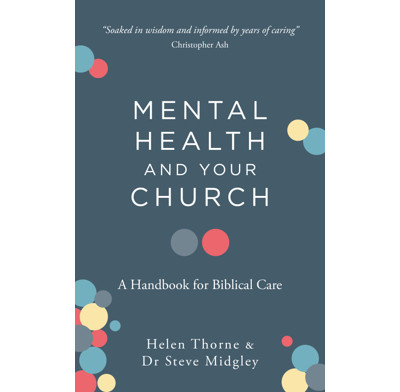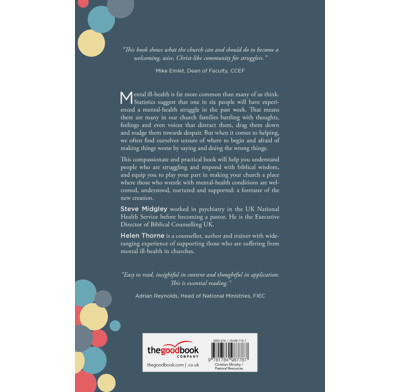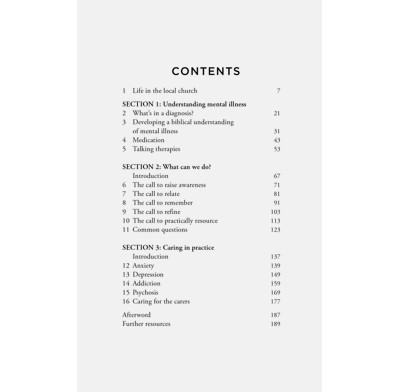“Caring in Practice”
How can the church come alongside God’s people in their mental health struggles? In Mental Health and Your Church, Helen Thorne and Steve Midgley present a handbook for Biblical care.
We must all be aware of mental-health conditions exacerbated by the pandemic. It is something not really talked about in my Asian American church context. This book is a welcome help, full of wisdom and practical tips for helping those who are hurting.
Biblical Understanding
What I most appreciate about this book is that it is comprehensive in what it is trying to accomplish. Section 1 helps you better understand mental illness, looking at diagnoses, developing a biblical understanding, medication, and talking therapies.
Section 2 asks: What can we do? The church has a specific call to raise awareness, relate, remember, refine, and practically resource. As a youth Sunday School teacher, I was convinced I need to do more in regard to mental-health awareness. I can help my students feel welcome, safe, and hopeful while helping them see God as fundamentally good, gracious, and kind.
Caring in Practice
Section 3 looks at caring in practice, using case studies of anxiety, depression, addiction, and psychosis. Using Scripture and working through the Gospel can help others see their identity in Christ more clearly.
This book acknowledges the importance of professionals, but also equips the church for service. Pastors and church leaders would be prudent to read this book. Sunday School teachers, youth counselors, and small group leaders will feel better prepared to help their people. God cares about the whole person, and so should the church. This book is a useful help.
I received a media copy of Mental Health and Your Church and this is my honest review.



